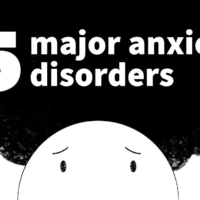How to Correctly Praise Children to Foster Growth Mindset | Dr. Andrew Huberman
00:00:02
The research paper I’d like to discuss briefly that beautifully embodies the runway that led to the discovery of growth mindset is a paper from Dr. Carol Dweck, as well as her colleague, Claudia Mueller.
00:00:15
And the title of the paper essentially says it all. The title is Praise for intelligence can undermine children’s motivation and performance, right? That should be surprising that praise for intelligence can undermine motivation and performance.
00:00:32
I would’ve thought, and I think many people probably believe that if you tell a child or an adult that they’re really good at something and you’re genuine about that feedback, meaning they’re performing well, and you say, great, you’re doing really well, you’re so smart, you’re so talented, that their performance would continue to improve, that it would bolster their motivation to engage in that activity, which hopefully they enjoy.
00:00:53
But regardless, provided that it’s a safe activity, it’s educational, what have you, that it would serve to encourage them, right? The kid thinks not only am I engaging in this activity, but I’m getting positive feedback, presumably from people that I care about or whose opinion I care about, wouldn’t that serve to elevate performance? It does not.
00:01:13
In fact, the exact opposite happens.
00:01:14
So I’ll just give you a few of the key takeaways from this study.
00:01:19
The way it was done is very interesting.
00:01:21
They essentially gave feedback about performance that was linked up with a child’s intelligence, telling kid they’re smart, they’re talented, that they can learn things really easily or that they’re very good at learning this sort of thing, and they called that intelligence feedback.
00:01:40
Or they gave them what was called effort feedback. The simple way to think about effort feedback is that it’s more attached to verbs as opposed to labels. So effort, feedback consists of things like you tried really hard on that problem, it was great the way that you applied effort, it was great the way that you persisted, it was great the way that even when you got the wrong answer, you spent 10 minutes thinking about it and then you tried again and again, or in some cases, even if they didn’t get the right answer telling them, well, even though you didn’t get the right answer, it’s really terrific that you continue to try, okay? So intelligence feedback was the sort of feedback that was tied to labels of identity, things like smart, talented, et cetera.
00:02:21
Whereas effort feedback was tied to verbs, choices, behavioral and cognitive choices that children made in an effort to learn or get better at something.
00:02:29
So in this study, which included over a hundred children, they either got the intelligence type feedback or the effort type feedback, or there was a control group that didn’t get either the intelligence or the effort type feedback, and then they looked at a number of different outcomes.
00:02:44
So I’ll just highlight a few examples of what they found. First of all, the kids that got the intelligence based feedback when they were then later offered problem sets that were either challenging or were of the sort that they knew they could perform well on, they tended to select problems that they knew they could perform well on.
00:03:02
These were what were referred to as performance goals. In other words, they picked problems that allowed them to continue to get the praise that they had received previously about being smart or talented.
00:03:13
Whereas the kids that got feedback about their strong effort when later presented with problems that were either easy or hard, more often than not, they picked the harder problems that stood to teach them more. So that’s striking.
00:03:27
It says that if you tell a kid that they’re smart or talented and that’s the reason why they perform well, when they encounter challenges, they are likely to go with the least amount of challenge so that they can continue to receive that praise or feedback.
00:03:40
Whereas if you receive praise and feedback for your strong effort, then later you tend to pick environments, problem sets, et cetera, that allow you to exert the very effort that got you the praise in the first place. So in both cases, these children are essentially attached to the praise, right? In some sense.
00:03:59
I mean, we like to think that they enjoy these activities and they’re benefiting from them as well.
00:04:03
But in both cases, the praise really serves to reinforce a certain pattern of behavior. But in the case of giving intelligence feedback, the kids are really just trying to reinforce being told that they’re smart or talented, as opposed to reinforcing the engagement in the activity that got them the praise in the first place. And the converse is also true when kids are told, hey, you really tried hard and that’s great, or, I like how you persistent, or you’re so persistent, I can really see how persistent you are in trying to get the right answer, even if you don’t get the right answer. Well, then when you present those kids with additional challenges, they work very hard to stay in challenge. And guess what? No surprise. The kids that are rewarded for effort and that continue to pick harder problems outperform the kids that are given the intelligence praise and feedback by a large margin. So what does this tell us? This tells us that the narratives that we hear from others, of course, reinforce certain patterns of behavior. What else does this tell us? This tells us that if you’re a parent or teacher, you have to be very careful about giving feedback to a child that is attached to their identity around an endeavor, especially if they’re performing well at that endeavor, right? Now, of course, if a child is not performing well at something, you also don’t want to tell them that they’re stupid, right? You don’t want to tell them that they’re deficient, right? But, that’s a rare occurrence in the classroom one would hope, that’s a rare occurrence on the field, one would hope.
00:05:29
But what’s very common, very, very common is that when we see children or adults performing well, we tend to give them identity labels as a way to try and reinforce whatever behavior we observe and we like. Now the other thing they looked at in this study, besides whether or not these kids would pick hard or easier challenges down the line were the actual raw performance on cognitive problems. And these data, I must say, are just so interesting. They took the kids and they gave them all the same problem sets, and all the kids across the board, whether or not they were getting intelligence praise or effort praise, or they were in the control group were performing more or less the same way. They were getting some of these questions right, some of these questions wrong.
00:06:13
Then they gave them praise after they completed those problems. They either got intelligence praise, you’re so smart, you’re so talented or they got effort praise, you tried so hard, you really persisted, that’s fantastic. Then later they gave them another set of problems and they looked at performance.
00:06:28
Now remember, the first time around all the kids got some of the questions right and some of the questions wrong, so there’s room for improvement for everybody.
00:06:36
What they found was absolutely striking. The kids that were in the control group, so they didn’t get any specific form of praise, they performed more or less the same way as they did before. So if they were getting 75% of the answers right the first time, they got 75% of the answers right the second time. 25% wrong in both cases. The kids that were in the intelligence praise group the you are so smart, you’re so talented, praise group, their performance went down significantly. Whereas the kids that were in the effort praise group, their performance increased significantly, okay? So this is a bi-directional effect where giving intelligence praise reduces performance, and giving effort praise improves performance, which is absolutely striking and tells you everything you need to know, which is if you’re a parent, you’re a teacher, and, of course, as we all give ourselves feedback, rewarding yourself for effort is the best way to improve performance.
00:07:36
Rewarding yourself based on identity labels, so smart, so talented, you’re a great athlete, et cetera, all that stare in the mirror and do self affirmation stuff can actually undermine performance, and in fact, it does undermine performance.
00:07:48
It may not do it right away, but eventually it does. [MUSIC PLAYING]













